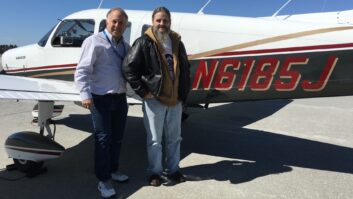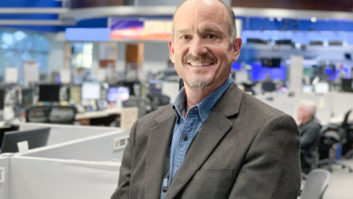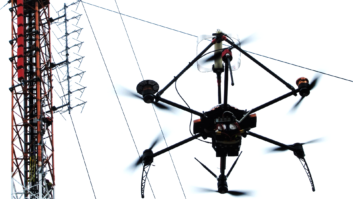WASHINGTON-The first educational session of the Government Video Expo and National Drone Show kicked off with a panel discussion on the current state of the drone industry.

Titled, “Rise of the Drones” and sponsored by the Television, Internet &Video Association of DC, each of the speakers on the panel have witnessed first-hand the beginnings of the commercial use of drones. Taking all of that into account, panel moderator Todd Clark, TIVA�s vice president, asked each speaker to talk about their experiences with drones and what advice they would give to other drone users.
Here’s what the panelists had to say:
Brian Kelly from Single Malt Media is formerly a production executive at the Discovery Channel and began using single-prop helicopter drones for video production in 2007. After leaving the Discovery Channel in 2009 to start his own production company, Kelly began dabbling in drones for his own projects but eventually found that there were many potential clients looking for drone video production hire-outs.
“As a production company, a for-hire freelancer wasn’t really in our business plan. But back then since no one was using drones our phone rang-off the hook for the next four years,” Kelly further explained.
Mike Sobola, a private pilot and drone operator, as well as a lead producer for the Food and Drug Administration, suggests to anyone buying a drone to make sure they know who the manufacturer is and how reliable they are in the case any fixes to the drone are needed.
“Drones have lots of moving parts, so service is number one,” Sobola concluded.
Terry and Belinda Kilby, husband-wife owners of the production company Elevated Element, started using drones for aerial photography when they first attached a camera of their own to an RC helicopter.
“The birds-eye perspective is an important perspective throughout art history, so as soon as I saw that shot I knew we had to carry a better camera somehow,” says Belinda Kirby. Some advice from the couple: “do not rely on flight simulators and GPS, learn how to fly because those things can fail.”
Two other panelists have capitalized on providing drone video hire-outs, similar to what Brian Kelly found his business being hired to do. Nathanael and Stuart Showalter stressed that providing legal aerial imaging involves extra costs like insurance and the constant threat that your drone could either crash due to malfunction or user error. Advice from the brothers for those seeking to do the job themselves: “practice, practice, practice and be aware of the laws.”
A version of this article was originally posted on the website of Government Video, sister publication of Radio magazine.
�







